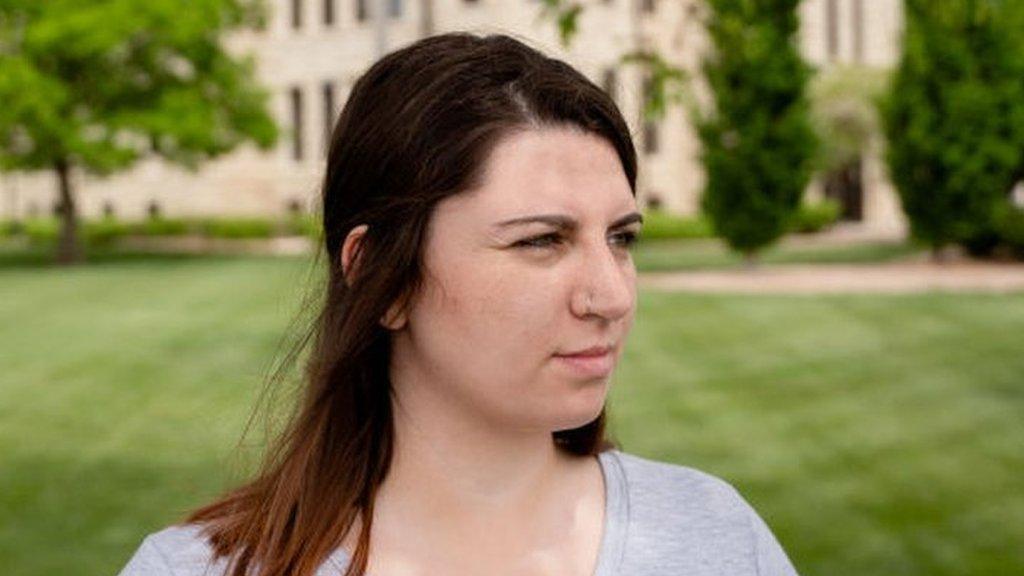Kansas: The state where abortion is on the ballot
- Published
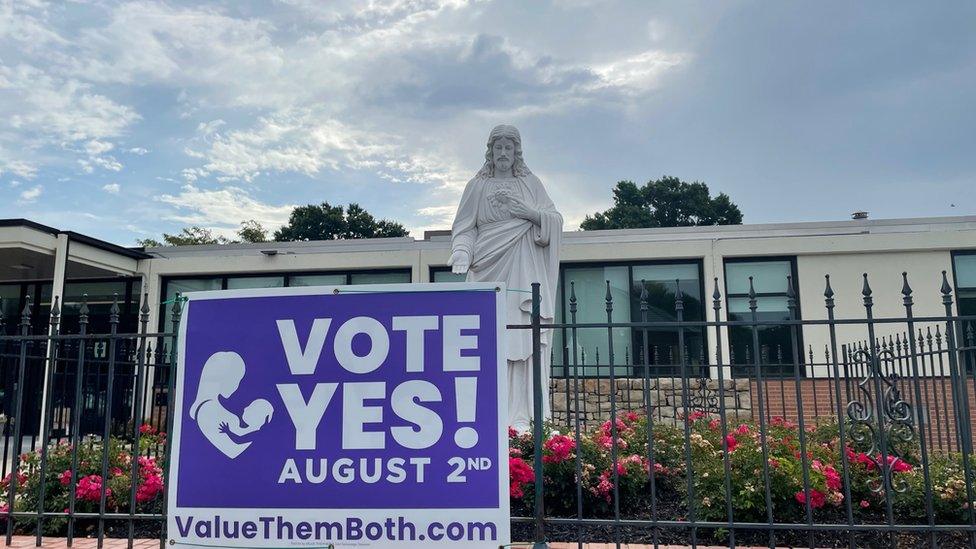
Though churches cannot endorse political candidates, they can endorse political campaigns
On a recent Sunday in Kansas, a red-tailed hawk soared over a Catholic church at dusk. Mass had ended, and clouds were rolling in. Inside the foyer, a slideshow featuring a picture of a curly-haired baby and his mother urged parishioners to "value them both", the slogan for those who want to change the state's abortion laws.
On 2 August, Kansans will vote on whether to alter the language of the state constitution, the first state to vote on such an amendment since the US Supreme Court overturned Roe v Wade, abolishing the constitutional right for a woman to have an abortion. If it passes, members of the Republican-controlled state legislature can write laws that make it much harder, if not impossible, for a woman in Kansas to get an abortion.
The ballot is written so that a "yes" vote affirms that "there is no Kansas constitutional right to abortion". Voting against the amendment would keep the constitution as-is, meaning that women in the state do have a right to an abortion.
At the Catholic church, located in Overland Park, a police officer stood guard. A few days earlier, someone had painted "My Body My Choice" over a statue of the Virgin Mary, and church-goers were skittish. "Thanks for your protection," one of them told the officer.
Meanwhile, at a nearby abortion clinic, Rachel Mary Stout, a 26-year-old pro-choice activist and podcaster, stood outside with a 9mm pistol strapped to her chest. She had a gun, she said, because of the death threats she has received for holding up a cardboard sign pointing to the clinic, one of only four facilities in the state that still performs abortions.
These contrasting Kansas scenes - one inside a church, the other outside a clinic - reflect the deep divide on this issue. Both sides are campaigning on their passionately held views over access to abortion ahead of the vote. And in a state where residents are intensely proud of where they come from, there's a battle over what are truly Kansan values.
While the US Supreme Court's decision to overturn Roe v Wade made it possible for individual states to restrict access to abortion, it did not automatically overturn the state laws. Kansas, like in several states in the US, has enshrined the right to abortion in its state constitution.
That means that if lawmakers in Kansas want to make abortion illegal - they will have to change the law.
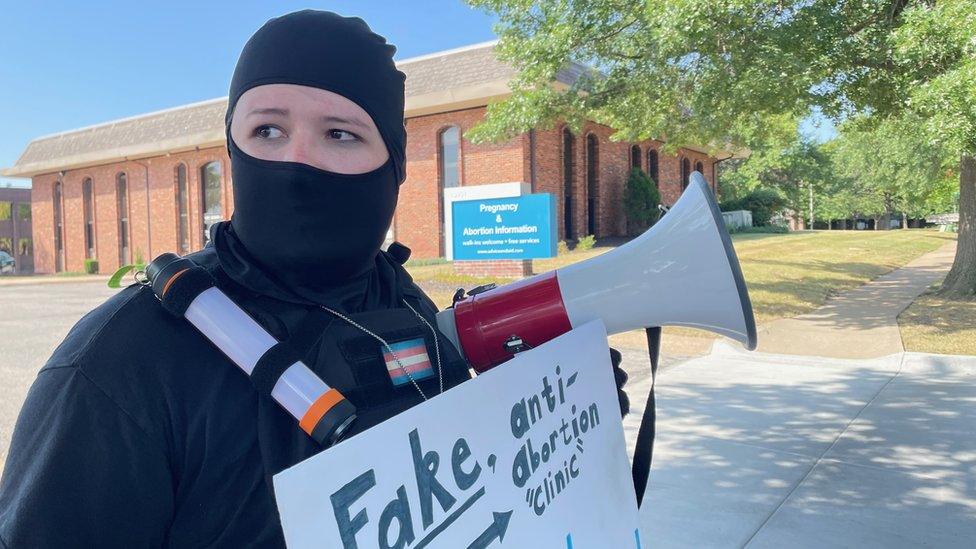
Rachel Mary Stout stands outside an abortion clinic
The right to an abortion was debated in a serious way in 2019, when the Kansas Supreme Court ruled the state constitution's Bill of Rights "affords protection of the right of personal autonomy, which includes the ability to control one's own body".
The number of abortions in the state has gone up since the ruling. In 2019, according to the state's Department of Health and Environment, about 6,900 abortions were performed. Last year, the number jumped to more than 7,800, and nearly half of the women came from another state, most of them from neighbouring Missouri.
"This is a destination spot for people from a four- or five-state radius to come and murder their child," said Richard Kiper III, 49, a conservative Christian and an antique-house restorer.
On a recent Saturday, Mr Kiper stood outside an abortion clinic with his son Judah, 12, carrying a "Do Not Murder Your Baby" sign.
Ms Stout, the armed podcaster, stood nearby. The medical facility is located in a suburban office park, near a fast-food restaurant, and the smell of French fries hung in the air. A couple of dozen other activists - on both sides of the debate - had gathered there. Some were playing rap music and blowing horns, and people were shouting at each other.
Police officers soon arrived, telling the pro-choice protesters to be quiet. A local noise ordinance states that they cannot exceed 70 decibels, or about as loud as a washing machine. An officer told the BBC he had clocked them at 80-85.
Michael McConnell, a volunteer at the abortion clinic, said that this was a regular occurrence, where anti-abortion activists would shout out to patients, and pro-choice groups would loudly play music to drown them out.
He was carrying a shredded "Vote yes" yard sign under his arm. He looked down at the sign and laughed nervously. "It seems a little incriminating," he said, explaining that he had pulled it out of a grassy meridian and torn it up.
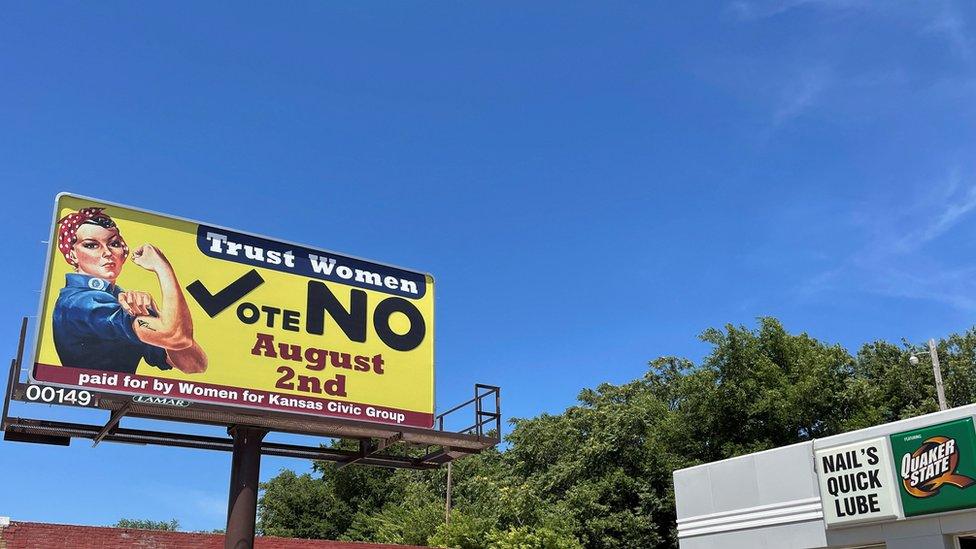
This vote has potential to change the Kansas constitution
Both sides are supported by powerful figures, and lots of money.
Progressive activists are behind in the polls, but they have a fundraising edge. The leaders of an organisation, Kansans for Constitutional Freedom, have reported more than $7.4m in contributions towards their campaign to defeat the amendment. US Senator Elizabeth Warren and other prominent Democrats have endorsed their campaign.
On the other side, the Value Them Both Association (the amendment is referred to as the "Value Them Both Amendment"; in this case, "both" refers to mother and child) has raised more than $6m in contributions.
The lion's share of their money has come from the archdiocese of Kansas City in Kansas, which is led by Archbishop Joseph Naumann.
Churches are tax-exempt in the US, and they are not allowed to get involved in campaigns for political candidates. Yet churches can campaign for a specific issue, such as the referendum on abortion.
A spokesperson for the archbishop declined to comment, instead referring the BBC to the Value Them Both Association.
Mackenzie Haddix, a spokeswoman for the organisation, said bumper stickers have been torn off cars, and yard signs stolen. "Members of the Value Them Both coalition are scared," she said. "But ultimately it just encourages more people to vote yes, because they've seeing the aggression from the other side. And that's not a Kansas value."
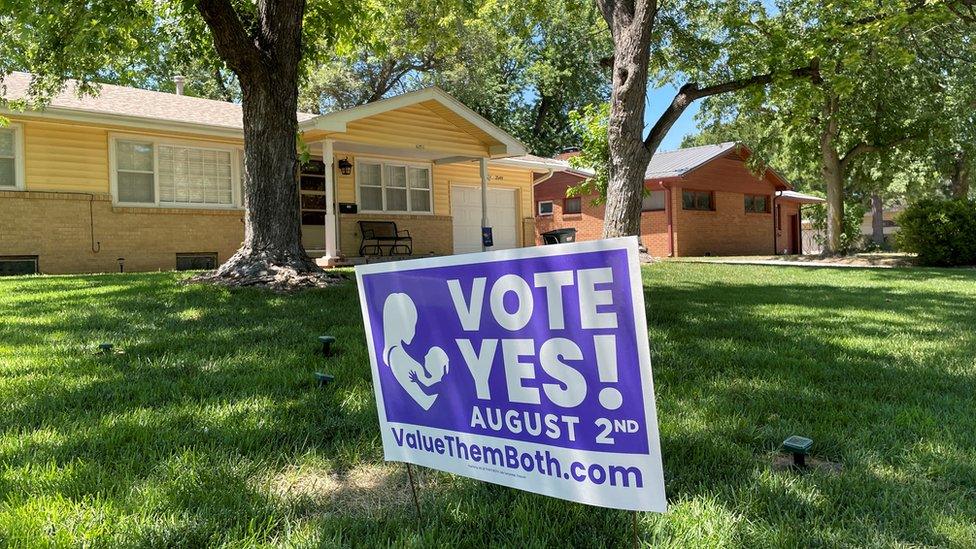
The vote will happen on 2 August
According to a poll conducted by a Kansas City-based research company, co/efficient, 47% of likely voters plan to support the amendment, and 43% will vote against it. It is a close race, and the electoral battle has energised both sides.
Voting takes place during the dog days of summer, an unusually hot one even for Kansas. Turnout for these elections is usually about 35%, according to the Office of the Kansas Secretary of State. This year, more than 60% of eligible voters are expected to cast a ballot.
The vote in Kansas is the first real-world test of how ordinary people feel about abortion since the Supreme Court decision. The outcome of this battle is likely to have an impact on how other states approach their own laws - and it will shape how politicians campaign on the issue ahead of the national midterm elections in November.
Still, it can be hard to predict how people will mark their ballots. Anne Jones, 57, a doctor who was raised Catholic, supports the right to choose an abortion and plans to vote against the amendment. But she says: "When I'm in there voting, I'm wondering what the Catholic girl in me will say." Like many Kansans, she struggles with values, and with her vote, too.
Related topics
- Published24 June 2022
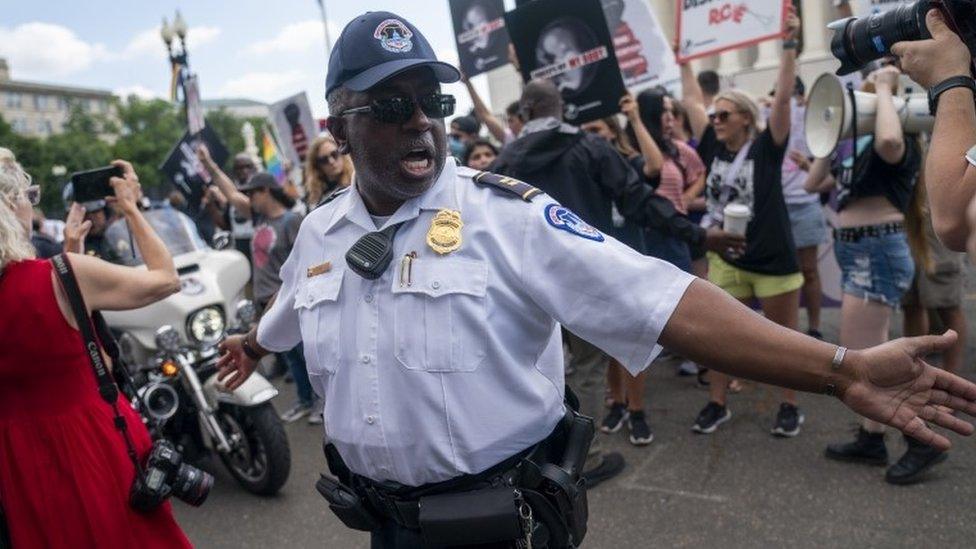
- Published25 July 2022
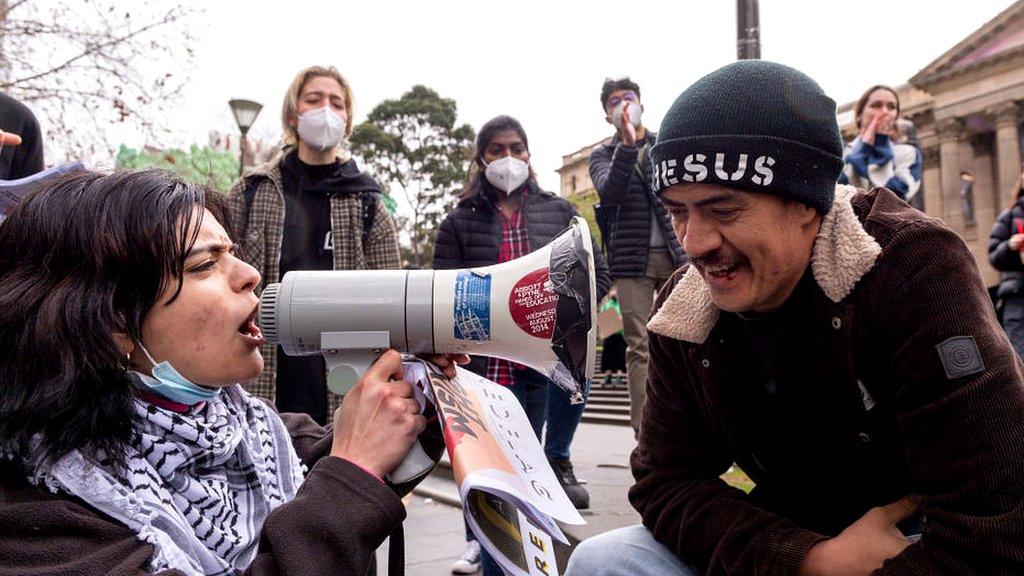
- Published27 June 2022
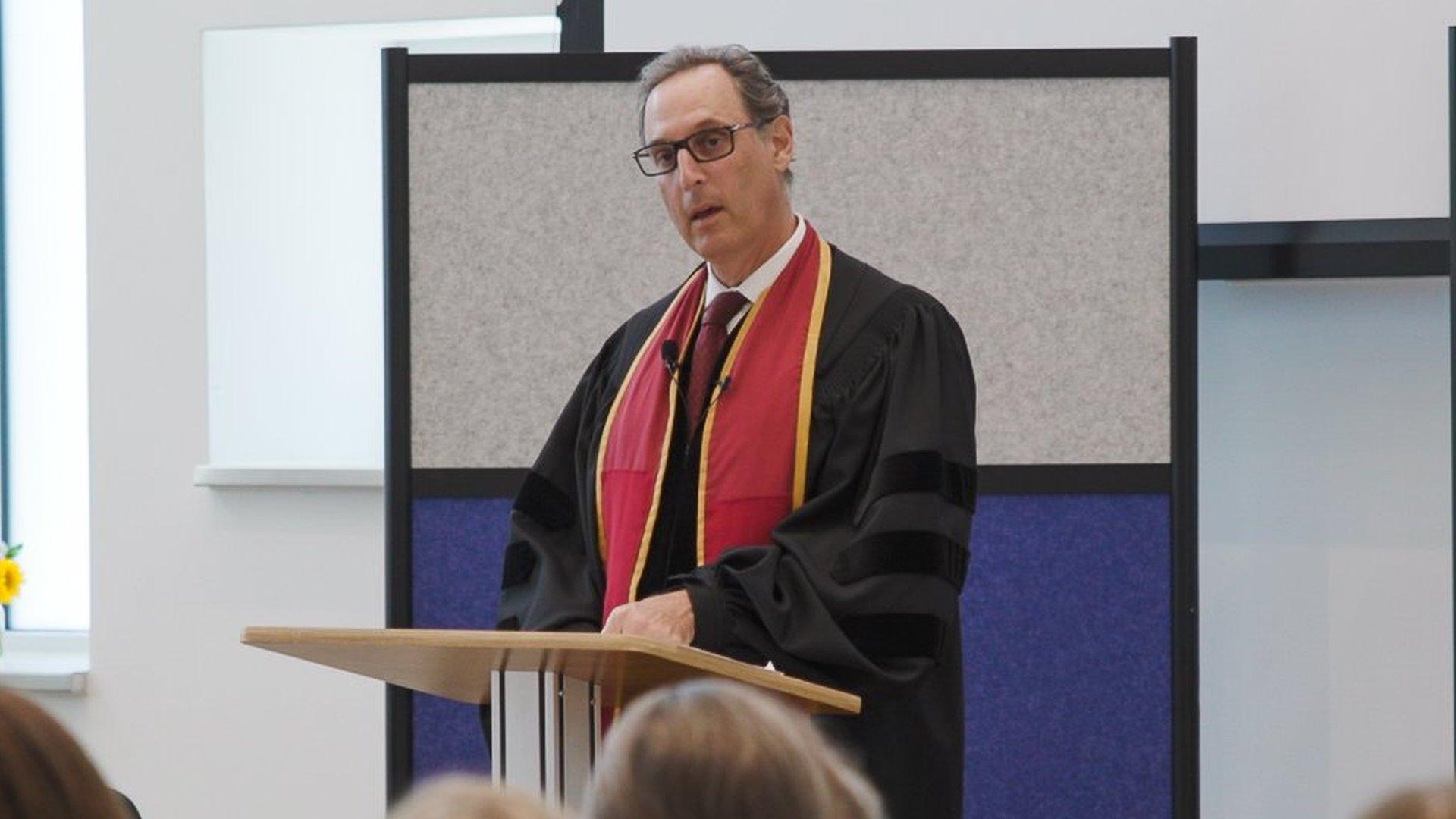
- Published12 July 2022
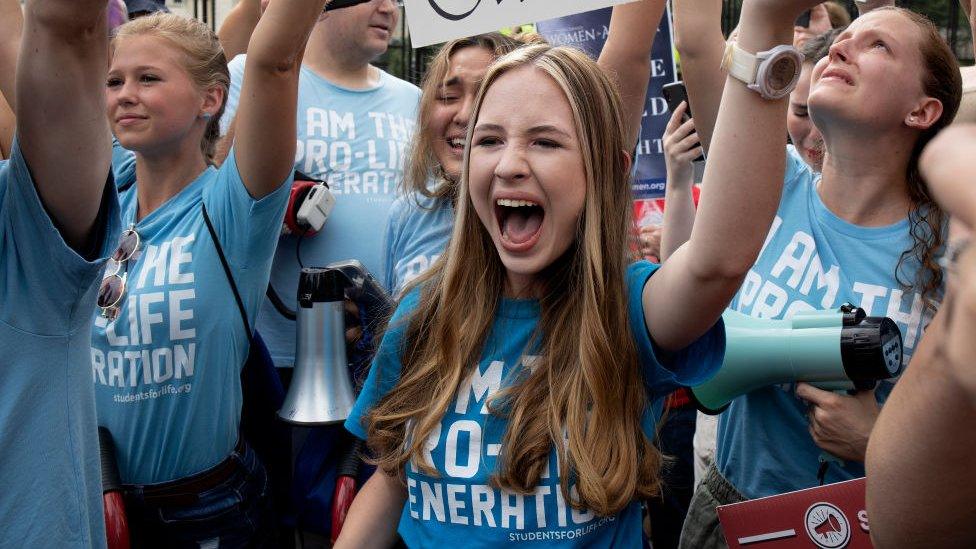
- Published30 September 2021
